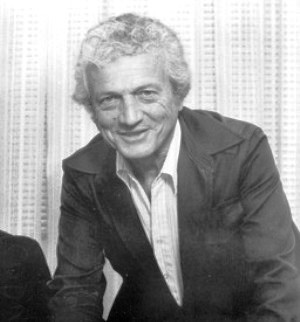|
|||||||||||
|
Skip Navigation | ||||||||||
Achievements worth mentioning...College of Humanities faculty, Professors Irene Clark of English, Enrique de la Cruz of Asian American Studies and Peter Garcia of Chicana/o Studies recently received prestigious Fulbright Awards. Professor Clark spent eight weeks at Queen Mary University, London in Fall 2007 and will serve as a Fulbright Senior Specialist for a five year term ending in 2011. Professor de la Cruz taught an advanced research methods seminar for graduate students at Leyte Normal University, in Tacloban City, Leyte Province, Philippines. Professor Garcia traveled 50 miles south of the U.S./Mexico border to study the musical pilgrimage associated with the Fiesta de San Francisco, celebrated in Magadalena de Kino. Our Jewish Studies Program remains active and engaged in seeking outside community partnerships. Recent successes include a $10,000 grant from the "1939" Club to sponsor the spring 2009 graduate Jewish Studies course “The Holocaust and Genocide for Educators”. Additionally Jewish Studies received a $13,000 gift from the Zimmer Foundation in support of Service Learning in the Jewish Community. The College of Humanities received $35,000 from Oprah’s Angel Network in support of its LSLA Fund (Literacy Scholars for the future of Los Angeles) for academic year 2009-2010. The fund provides stipends to encourage aspiring teachers to enroll in a specialized concentration which educates them in literacy training techniques for at-risk early readers. The College of Humanities is part of the CSU Strategic Language Initiative designed to provide intensive training in critical languages. Currently the SLI supports five courses of language study, including Korean (CSULA), Chinese (CSULB), Arabic (CSUSB), Farsi (CSUF), and Russian at CSU Northridge. Supported by a federal earmark, CSUN students participate in an 8week Our Peer Mentor Program classes are attaining first time freshmen retention rates of more than 90% — surpassing the university’s retention rate of 78% — owing to the commitment of the peer mentors assigned to these classes. Peer mentors are juniors and seniors who attend all class sessions with students and are trained to help students with three basic problems: attendance, time management, and use of campus resources. The College of Humanities Peer Mentor Project began in 2006 and focuses on increasing retention in freshman and sophomore courses. Nayereh Tohidi, one of the eight faculty members selected for the California State University, Northridge Research Fellows for the 2009–10 academic year. Nayereh Tohidi (Gender and Women’s Studies) will study the women’s movement under the Islamist regime in Iran and its role in the process of democratization and secularization of the Iranian society Michael Ross, generous supporter of the Jewish Studies Program at CSUN, dies but will not be forgotten.
But at CSUN, Mickey Ross will be remembered as the Jewish Studies Program’s generous supporter. In 1992, when Mickey heard of the drastic cuts that imperiled the fledgling Jewish Studies Program, he stepped forward with financial assistance. For the next two years, his gifts paid the salaries of part-time instructors who were teaching vital courses. When that financial crisis was over, Mickey continued to provide assistance that was used for guest speakers, student scholarships, pedagogical tools such as maps and slides, and library resources. Having secure funding allowed the Jewish Studies Program to develop new courses and reach out to the community. Mickey was a gracious, witty, and intelligent man. Born in 1919 in New York City, he grew up in a Yiddish-speaking household that he once said was permeated by “the essence of Yiddishkeit” – the Jewish way of life. Mickey was not a religious man, but he had a strong sense of ethical values. He was proud of Jewish culture and was especially fond of Yiddish literature. He endowed UCLA and NYU with professorships in Yiddish language and literature. Mickey was quite informed about politics and community needs, and he gave generously to friends and to SOVA, the food pantry of the Los Angeles Jewish community. He and his wife Irene were devoted to their pet cats and had many loyal friends from diverse backgrounds. The Jewish Studies Program at CSUN was blessed by Mickey’s generosity and respect. As the beneficiary of low-cost public higher education himself, he knew how important it is for the promotion of cultural sensitivity, creativity, and the economic health of society. |
|
||||||||||
|
|||||||||||
 Michael “Mickey” Ross will be known to American cultural history as the writer of “All in the Family,”a popular sitcom that revolutionized TV in the 1970s by humorously but realistically depicting the prejudices and social practices of the day. He also wrote and produced “The Jeffersons,” which focused on an upper middle-class African-American family, and “Three’s Company,” a farcical depiction of three roommates that spoofed American sexual mores.
Michael “Mickey” Ross will be known to American cultural history as the writer of “All in the Family,”a popular sitcom that revolutionized TV in the 1970s by humorously but realistically depicting the prejudices and social practices of the day. He also wrote and produced “The Jeffersons,” which focused on an upper middle-class African-American family, and “Three’s Company,” a farcical depiction of three roommates that spoofed American sexual mores.